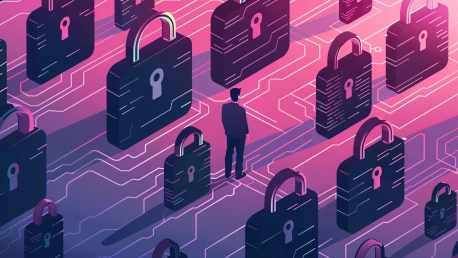AT&T has recently found itself in the spotlight after disclosing a significant cyber breach that impacted millions of its customers, raising alarms about the ongoing challenges associated with data privacy and security in the telecommunications industry. This breach has highlighted the broader implications for national security, the existing legislative landscape, and the powerful influence of industry lobbies.
Data Breach Incident
AT&T’s recent disclosure revealed a major data breach affecting nearly all its cellular customers and those of wireless providers on its network between May and October 2022. This incident followed another unrelated breach earlier in March, where personal information, such as Social Security numbers, of 73 million current and former customers was leaked. These incidents serve as reminders that telecommunications companies remain high-value targets for cybercriminals due to the sensitive and comprehensive nature of their data, which includes call records, text messages, personal information, and internet usage data.
Legislative and Regulatory Landscape
While there are state-level data privacy laws in 19 states, a comprehensive federal data privacy law is conspicuously missing. This patchwork of regulations creates complexity and inconsistency in how data privacy is enforced across the country. Telecommunications companies, including AT&T, have heavily influenced state regulations through lobbying efforts, often preventing the enactment of more stringent laws. This legislative fragmentation complicates efforts to safeguard consumer data uniformly and effectively.
Lobbying Efforts
The influence of industry lobbies cannot be understated. They have been successful in shaping regulations to their benefit, frequently opposing stringent data minimization and security measures that would impose higher compliance costs. These lobbying activities are a significant impediment to the passage of stricter privacy laws. The telecommunications and tech industries continue to wield considerable power in legislative processes, often curbing efforts to establish robust data privacy protections.
Consumer Advocacy and Proposed Regulations
Consumer advocates argue for stronger data protection laws that minimize the amount of data collected by companies and impose strict security and notification requirements in case of breaches. They call for national privacy legislation that ensures uniform protections across all states and industries. Such a law would eliminate inconsistencies and provide clear, enforceable standards to safeguard consumer data. However, despite growing support, achieving this regulatory milestone remains challenging due to significant opposition from industry stakeholders.
Impact on Consumers
The implications of data breaches for consumers are profound, as they must navigate complex and often opaque user agreements to understand how their data is being used and protected. In the absence of comprehensive federal protections, consumers face numerous challenges in safeguarding their personal information. The recent breaches have underscored the vulnerability of private information, emphasizing the need for more stringent and uniform data privacy regulations.
Industry Response
Despite the considerable public concern, AT&T has expressed support for a federal privacy policy while continuing to lobby against individual states’ stringent data privacy laws. The company, along with others in the industry, often appeals decisions and fines related to improper data sharing and breaches. This dual approach of supporting federal oversight while resisting state-level regulations illustrates the tension between commercial interests and the need for robust consumer protection.
Overarching Trends and Consensus Viewpoints
There is widespread acknowledgment of the need for a unified federal data privacy law to replace the current disjointed state-level regulations. The telecom and tech industries’ lobbying power significantly impedes legislative progress in implementing stronger data privacy protections. The sensitivity and value of the data held by telecommunications companies make them prime targets for cyberattacks, further complicating the regulatory landscape.
Cohesive Narrative
The narrative around AT&T’s recent data breaches underscores the critical need to bolster data privacy and cybersecurity measures in the telecommunications sector. Despite the pressing need for robust protections, legislative progress is stymied by powerful industry lobbies that shape regulations to avoid stringent compliance costs. The existing patchwork of state laws creates inconsistencies and loopholes, leading to a call for comprehensive federal legislation to provide consistent and enforceable privacy protections for all Americans.While consumer advocates and some legislators push for robust data minimization and security measures, industry resistance remains a formidable barrier. The breaches highlight the significant risks posed to consumers, whose private information is increasingly vulnerable. Therefore, despite assertions from companies like AT&T that they support federal data privacy policies, their lobbying activities tell a different story, underscoring the tension between commercial interests and consumer protection.
Conclusion
AT&T has recently drawn considerable attention after revealing a major cyber breach that affected millions of its customers. This incident has raised serious concerns about the persistent challenges of data privacy and security within the telecommunications sector. The breach has cast a spotlight on the broader implications for national security, emphasizing the urgent need for strengthened protective measures and vigilance. Furthermore, it underscores the inadequacies and limitations within the current legislative framework aimed at safeguarding sensitive information.The situation also brings to the forefront the significant influence wielded by industry lobbies, which often play a crucial role in shaping policy and regulatory landscapes. This incident serves as a poignant reminder of the evolving threats in our digital age and the necessity for comprehensive reforms and more robust enforcement mechanisms to protect consumer data. As the telecommunications industry continues to grapple with these issues, the need for a coordinated approach involving both private sector initiatives and government interventions becomes increasingly apparent.









